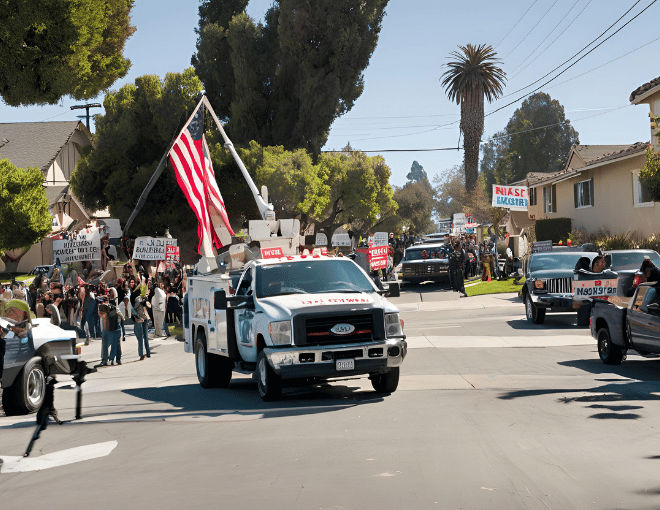
In Santa Clara, towing practices have been under public and political scrutiny. Policies and regulations concerning the operation of towing services in this city are molded by the intersection of public opinion and political pressure.
Public Outcry
It is common for people to be angry at Santa Clara towing practices. There have been many cases where vehicles were towed without proper signage or during unclear parking situations, which sparked outrage among residents.
These concerns are broadcast through public forums, social media discussions, and local news coverage, creating a wave of criticism against what is perceived as unfair actions.
Political Response
Elected leaders cannot ignore how locals feel about being towed, and they must find ways to address these issues or risk losing support from their electorate base.
They may also need to come up with reforms that appease voters whose expectations must be met if such grievances are not to persist beyond election campaigns into regular debates around legislative proposals aimed at making transparency and fairness improvements within this area.
Law-making initiatives
The lawmakers representing different constituencies within Santa Clara City Hall often receive suggestions seeking amendments on towing laws. Some of these proposals come as a result of outcry from members, while others are pushed through due to political wrangling between various interest groups.
The new rules introduced might focus more on making signs clearer. Capping fees charged per tow service rendered or even tightening conditions under which vehicles can be removed by tow trucks.
Advocacy Groups
Another key player in shaping people’s minds regarding these matters is non-governmental organizations (NGOs) that fight for consumer rights and fair procedures when it comes to vehicle removals.
They usually lobby for changes that protect consumers’ interests during storage as well as throughout the procedure followed prior to removing any car, using third-party firms mandated by law enforcement agencies tasked with implementing such measures aimed at safeguarding procedural justice in relation to the automotive hauling industry.
ALSO READ: Zoning Laws and Roofing Repairs: Navigating Political Regulations
Media Coverage
How the press reports on incidents involving cars getting impounded has great influence over general perceptions held by society about the practice. In-depth investigative stories, opinion pieces, and editorial columns not only bring out individual suffering but also expose systemic failures within this business, creating an environment where public opinion will demand nothing less than reforms touching on all aspects of towing operations.
Public Engagement
Town hall meetings, public hearings and community surveys are some ways through which citizens can directly communicate their concerns to policy makers. This serves as a platform for politicians to gauge the mood among residents, get input on different areas they need to improve upon, and show sensitivity towards issues affecting people at the grassroots level.
Policy Implications
When people’s feelings continuously find expression in terms of votes cast during elections or demonstrations held outside council chambers, it becomes clear that these sentiments have transformative potential when translated into actionable items by those holding public office.
Over time, such moves could result in stronger safeguards for customer rights, towing laws enforced more strictly, or even programs designed to enhance communication between tow truck operators and members of the public.
Future Prospects
As we speak, there is ongoing debate regarding how things should be done differently going forward with regards to vehicle hauling within Santa Clara County jurisdiction.
In discussions, it is anticipated that both parties—residents and government—will aim to find a balance between safety and regulatory compliance while also ensuring fairness for vehicle owners who might face confiscation due to non-compliance during legal enforcement by officers authorized under periodically updated statutes relevant across California.
Conclusion
These two forces—public opinion and political pressure—drive what happens in Santa Clara County towards towing practices. The government must listen carefully, do everything possible, and ensure equity exists during service delivery-related car removals so that all stakeholders are satisfied at the end of any decision-making process based on this issue, which affects many individuals’ lives daily within our region.




